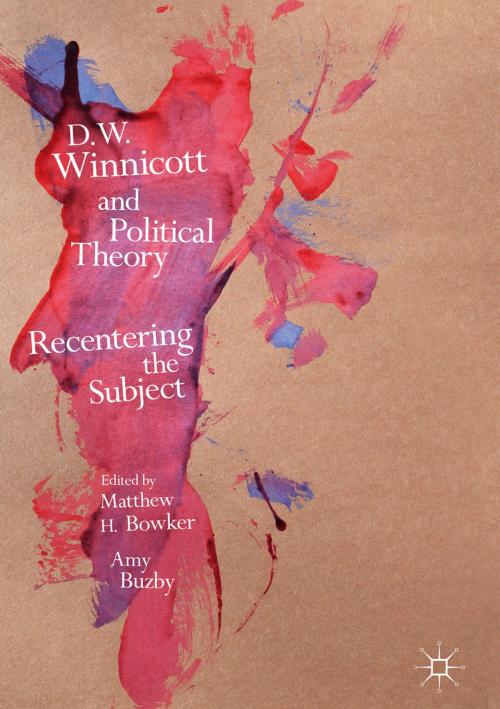D.W. Winnicott and Political Theory
Recentering the Subject
Nonfiction, Religion & Spirituality, Philosophy, Political, Social & Cultural Studies, Political Science, Politics, History & Theory| Author: | ISBN: | 9781137575333 | |
| Publisher: | Palgrave Macmillan US | Publication: | January 31, 2017 |
| Imprint: | Palgrave Macmillan | Language: | English |
| Author: | |
| ISBN: | 9781137575333 |
| Publisher: | Palgrave Macmillan US |
| Publication: | January 31, 2017 |
| Imprint: | Palgrave Macmillan |
| Language: | English |
In this volume, the work of British psychoanalyst D.W. Winnicott is set in conversation with some of today’s most talented psychodynamically-sensitive political thinkers. The editors and contributors demonstrate that Winnicott’s thought contains underappreciated political insights, discoverable in his reflections on the nature of the maturational process, and useful in working through difficult impasses confronting contemporary political theorists. Specifically, Winnicott’s psychoanalytic theory and practice offer a framework by which the political subject, destabilized and disrupted in much postmodern and contemporary thinking, may be recentered. Each chapter in this volume, in its own way, grapples with this central theme: the potential for authentic subjectivity and inter-subjectivity to arise within a nexus of autonomy and dependence, aggression and civility, destructiveness and care. This volume is unique in its contribution to the growing field of object-relations-oriented political and social theory. It will be of interest to political scientists, psychologists, and scholars of related subjects in the humanities and social sciences.
In this volume, the work of British psychoanalyst D.W. Winnicott is set in conversation with some of today’s most talented psychodynamically-sensitive political thinkers. The editors and contributors demonstrate that Winnicott’s thought contains underappreciated political insights, discoverable in his reflections on the nature of the maturational process, and useful in working through difficult impasses confronting contemporary political theorists. Specifically, Winnicott’s psychoanalytic theory and practice offer a framework by which the political subject, destabilized and disrupted in much postmodern and contemporary thinking, may be recentered. Each chapter in this volume, in its own way, grapples with this central theme: the potential for authentic subjectivity and inter-subjectivity to arise within a nexus of autonomy and dependence, aggression and civility, destructiveness and care. This volume is unique in its contribution to the growing field of object-relations-oriented political and social theory. It will be of interest to political scientists, psychologists, and scholars of related subjects in the humanities and social sciences.















